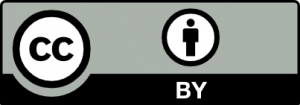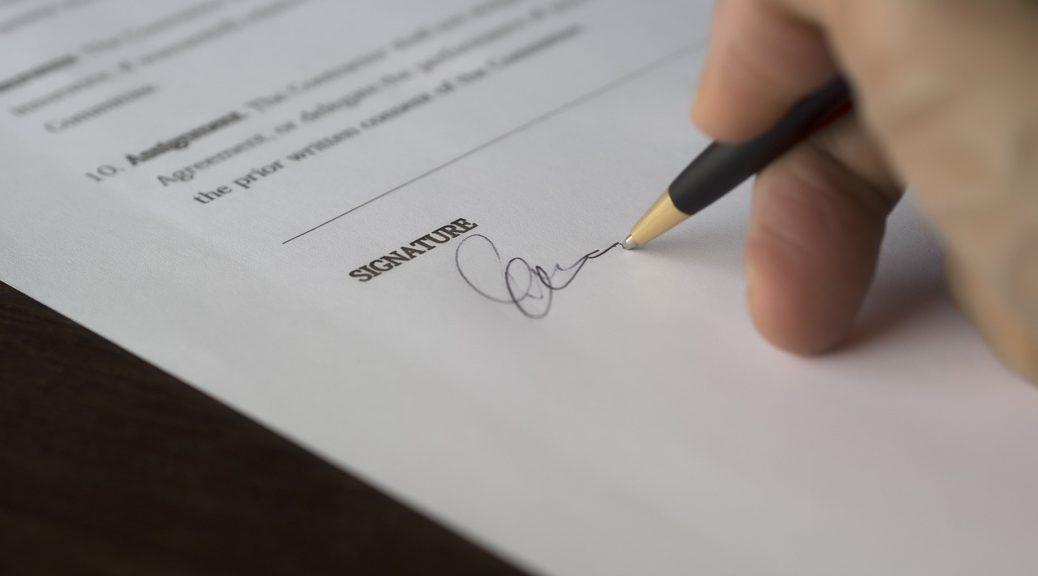This post by Liz Crisenbery, 2018-2019 Project Manager for Project Vox, is part of a series on graduate students’ “Intern Experience” at Duke University Libraries.
Author agreements — contractual documents provided by the publisher to the author, explaining the terms of publication — are foundational to many print and digital publications. Yet this stock element of publishing is not frequently discussed in relation to DH projects. Open access is a hallmark of digital humanities — making content available to anyone with an internet connection and thereby challenging the paywall approach to scholarly publishing. While open access also pushes against the overuse of copyright protections, it doesn’t oppose or necessarily undermine the rights of authors. How might digital humanities projects use author agreements to help acknowledge and protect the labor of people who develop content while also ensuring the resulting works can have broad access and use?

Enter Project Vox, an open-access digital-humanities project that seeks to amplify the voices of early modern female philosophers, challenge the canon, and provide access to teaching materials and research guides. It is chiefly a collaborative effort, dependent upon a team of individuals who research, write, edit, and stage biographical and bibliographical entries on women philosophers.
Project Vox itself is an open educational resource, yet not all the content that appears on the site is created by the team. As the range of content types published by Project Vox has expanded, we have realized the need to better communicate protections and access for works published on our site.
For instance, Project Vox recently published the first English translation of Émilie Du Châtelet’s essay on optics (the complete version of which was itself only recently discovered and transcribed). As project manager I worked with Liz Milewicz (co-director of Project Vox and Head of Duke Libraries’ Digital Scholarship Services) to create an author agreement that could be used for this translation and also future Project Vox publications. We wanted the translation to be easily accessible to a wide audience and to be available for use in research and instruction; we also wanted to protect the translator, Bryce Gessell, from having his work published in other forms without his consent.
Fortunately, we were able to consult with Duke Libraries’ Office of Copyright and Scholarly Communications, specifically Arnetta Girardeau (Duke Libraries’ Copyright & Information Policy Consultant) and Dave Hansen (Associate University Librarian for Research, Collections, and Scholarly Communication), to create a template author agreement for Project Vox publications. Suffice it to say, we would not have created such a document without their expertise and guidance. This is the resulting template for Project Vox author agreements: Project Vox Author Agreement – Master Template.
The process of creating this agreement highlighted for us how author agreements can be challenging for DH publications and yet necessary if we truly hope to protect and honor the work of content creators while also making that content freely available. While some of the information included in the author agreement is relatively mundane (e.g., the name of the author, the name of the work, information used to create a citation, etc.), much of the document establishes legal relationships between different parties. In the process of creating our author agreement, we realized our long-held assumption that Project Vox was the “publisher” of content needed to be reevaluated. Rather, because Project Vox is hosted by Duke University Libraries, and because the Libraries provide a more stable partner for entering into agreements, the Libraries are named as the publisher. Increasingly, academic libraries are acting as publishers, challenging the nature of publishing and creating new models. (Maria Bonn and Mike Furlough edited an essay collection on this very subject, which is itself available via open access.)

Additionally, the author in our agreement is tasked with choosing the type of Creative Commons license for their work and then to apply for that license. As stated on the Creative Commons organization’s website, “The Creative Commons copyright licenses and tools forge a balance inside the traditional ‘all rights reserved’ setting that copyright law creates. Our tools give everyone from individual creators to large companies and institutions a simple, standardized way to grant copyright permissions to their creative work. The combination of our tools and our users is a vast and growing digital commons, a pool of content that can be copied, distributed, edited, remixed, and built upon, all within the boundaries of copyright law.”[1] These licenses allow copyright holders the ability to qualify how their work can be re-used while prioritizing greater access to the work.
Through creating this template and publishing the first work on Project Vox with a signed author agreement, I’ve gained insight into parts of DH publishing that I never previously considered, particularly related to process and documentation from the standpoint of a publisher. As DH projects continue to partner with libraries to facilitate hosting and digital publication, I hope to have more conversations about how different projects handle publication, if they have author agreements, and what processes they follow to make content accessible.
[1] https://creativecommons.org/licenses/
Liz Crisenbery is a PhD Candidate in musicology who studies early twentieth-century Italian opera, exploring the intersection of gender, politics, and music. Her dissertation examines masculine identities of fascist composers and reception of their operas during the height of Italian fascism. Other research interests include digital humanities, opera and media, and riot grrrl. During the 2018-19 academic year, Liz worked as project manager for Project Vox with the support of Bass Connections.



